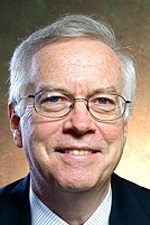Information
CC24 Keynote 03 - Therapists as Clients in Couple Therapy - William Doherty, PhD
Original Program Date :
May 04, 2024 (PST)
Length: 57:54
Description: Therapists experience the same relationship issues we see in our offices. Although our clinical training may give us more access to our inner emotional lives than many people, we face “occupational hazards,” such as a tendency to read our partner’s mind and then explain it to them. With humility and humor, let’s explore the relational self of the therapist and how we sometimes show up in couple therapy. In this workshop, we’ll learn how to how to help fellow therapists when they come as clients to leverage their personal and professional strengths to have healthier relationships—and avoid blind spots that come with the territory.
Learning Objectives:
- Identify common challenges therapists face in their own relationships
- Discuss how therapists’ relational blind spots can show up with their clients facing relationship problems
- Practice skills for helping therapists who come to therapy for relationship problems.
William Doherty, PhD

William J. Doherty is an educator, researcher, therapist, speaker, author, consultant, and community organizer. He is Professor and Director of the Marriage and Family Therapy Program in the Department of Family Social Science, College of Education and Human Development, at the University of Minnesota, where he is also an adjunct Professor in the Department of Family Medicine and Community Health.

